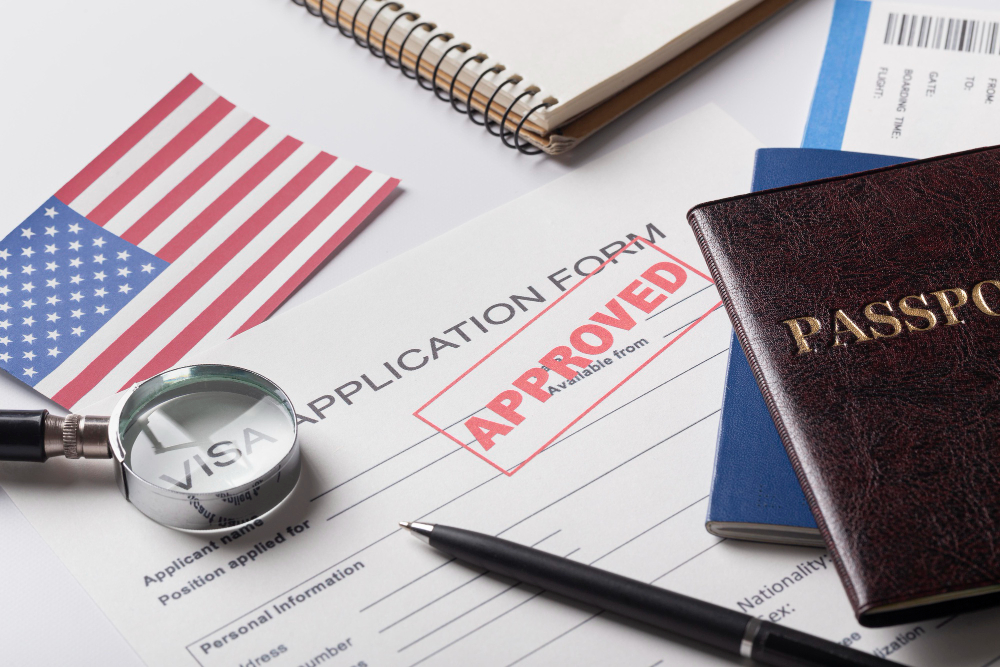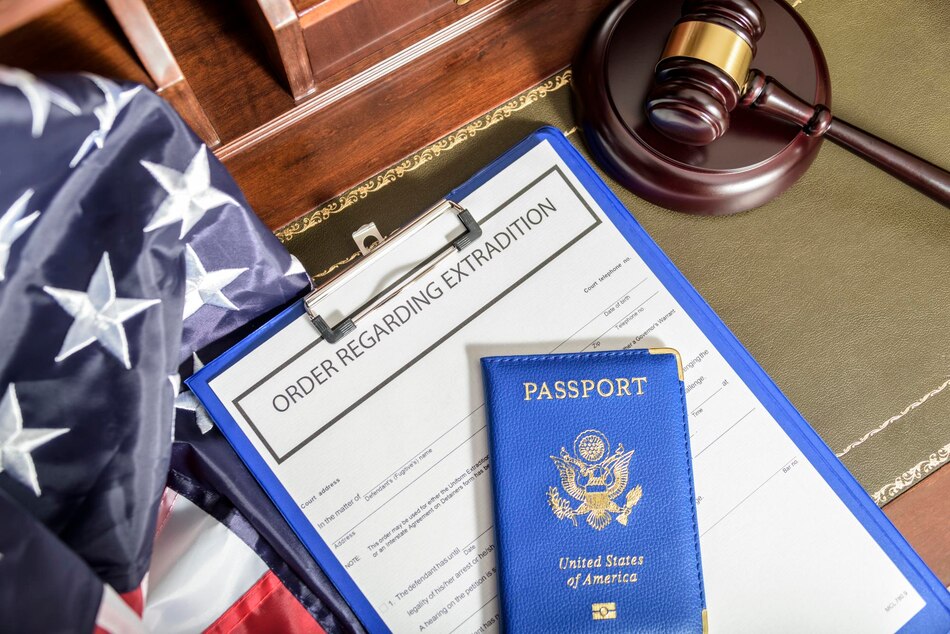Introduction (Immigration News in Florida)
Immigration is a significant and often contentious issue in the United States, with states like Florida playing a pivotal role due to their large immigrant populations and proximity to countries with high emigration rates. Florida’s diverse demographics, economic reliance on immigrant labor, and unique geopolitical position make it a key state in the national immigration debate. This blog delves into recent immigration news in Florida, exploring legislative changes, key events, and their broader implications.
1. Florida’s Immigration Landscape

Florida is home to one of the largest immigrant populations in the United States. According to the American Community Survey, approximately 20% of Florida’s population is foreign-born, with a significant portion hailing from Latin American and Caribbean countries. This diverse immigrant population contributes to the state’s vibrant cultural mosaic and its economic vitality, particularly in sectors like agriculture, construction, hospitality, and healthcare.
2. Recent Legislative Changes
In recent years, Florida has seen several legislative changes aimed at addressing immigration-related issues. One of the most significant developments in 2023 was the introduction of stricter immigration enforcement measures. Governor Ron DeSantis signed into law several bills aimed at curbing illegal immigration and enhancing the state’s role in immigration enforcement.
Senate Bill 1718
Senate Bill 1718, passed in May 2023, is among the most controversial pieces of legislation. The bill includes several key provisions:
- Mandatory E-Verify: Requires private employers with more than 25 employees to use the E-Verify system to confirm the immigration status of new hires.
- Penalties for Non-Compliance: Introduces fines and penalties for employers who knowingly hire undocumented workers.
- Enhanced Cooperation with ICE: Expands state and local law enforcement cooperation with Immigration and Customs Enforcement (ICE), including detaining individuals based on immigration status.
- Restrictions on Public Benefits: Limits access to certain state-funded benefits for undocumented immigrants.
Proponents of the bill argue that it is necessary to curb illegal immigration and protect jobs for legal residents. Critics, however, contend that it could lead to labor shortages, particularly in industries heavily reliant on immigrant labor, and increase racial profiling and discrimination.
Driver’s Licenses for Undocumented Immigrants
Another contentious issue has been the provision of driver’s licenses to undocumented immigrants. Florida, unlike some states, does not allow undocumented immigrants to obtain driver’s licenses. Recent efforts to change this have met with resistance, with opponents arguing that it would undermine immigration laws, while supporters argue that it would improve road safety and allow immigrants to contribute more fully to the economy.
3. Impact on Immigrant Communities

The new immigration laws have had a profound impact on Florida’s immigrant communities. Many immigrants, both documented and undocumented, have expressed fear and uncertainty about their future in the state. Reports of increased ICE activity and raids have heightened anxiety within these communities, leading to lower engagement with public services and reluctance to report crimes or cooperate with law enforcement.
Economic Implications
Florida’s economy, particularly sectors like agriculture and construction, relies heavily on immigrant labor. The new laws have exacerbated labor shortages in these industries, as many undocumented workers have left the state or moved into the shadows to avoid detection. Farmers have reported difficulties in finding workers to harvest crops, leading to increased reliance on guest worker programs and concerns about rising production costs.
Social and Cultural Impact
The heightened enforcement measures have also affected the social and cultural fabric of Florida’s communities. Many immigrant families live in fear of separation due to deportation, which has psychological and emotional consequences, particularly for children. Community organizations and advocacy groups have ramped up efforts to provide support, legal assistance, and resources to affected individuals.
4. Legal Challenges and Advocacy
The new immigration laws in Florida have faced legal challenges from civil rights groups, labor unions, and immigrant advocacy organizations. These groups argue that the laws violate constitutional rights, encourage racial profiling, and disrupt the lives of hard-working immigrants who contribute to the state’s economy and society.
ACLU Lawsuits
The American Civil Liberties Union (ACLU) has been at the forefront of challenging Florida’s immigration laws. The ACLU has filed lawsuits arguing that mandatory E-Verify requirements and enhanced cooperation with ICE violate the Fourth Amendment rights of individuals against unreasonable searches and seizures. They also argue that these laws overstep state authority, encroaching on federal jurisdiction over immigration matters.
Community Support and Resistance
In response to the new laws, various community organizations and advocacy groups have intensified their efforts to support immigrant communities. Initiatives include legal aid clinics, Know Your Rights workshops, and advocacy campaigns aimed at raising awareness and mobilizing resistance. Religious organizations, labor unions, and civic groups have also played a crucial role in providing support and resources to immigrants affected by the new laws.
5. Future Outlook
The future of immigration policy in Florida remains uncertain, with ongoing debates and potential changes on the horizon. The state’s legislative landscape is likely to continue evolving as political dynamics shift and new issues emerge. Key areas to watch include:
Federal-State Tensions
The relationship between federal and state governments on immigration enforcement is a critical factor. Changes in federal immigration policy, particularly under different administrations, can influence state-level actions and priorities. Florida’s approach to immigration will continue to be shaped by these broader federal trends.
Economic Pressures
Economic factors, such as labor shortages and the needs of key industries, will also play a significant role in shaping immigration policy. As businesses and industries advocate for more flexible immigration policies to meet labor demands, there may be increased pressure on lawmakers to find balanced solutions.
Community Advocacy
The strength and resilience of immigrant communities and their allies will be crucial in shaping the future of immigration policy in Florida. Continued advocacy, legal challenges, and public awareness campaigns can influence policy decisions and promote more inclusive and humane approaches to immigration.
Conclusion
Immigration remains a complex and multifaceted issue in Florida, with significant implications for the state’s economy, society, and political landscape. Recent legislative changes have sparked intense debates and highlighted the challenges faced by immigrant communities. As the state navigates these issues, it is essential to consider the human impact of policies and strive for solutions that balance enforcement with compassion and inclusivity. The ongoing efforts of advocacy groups, legal challenges, and community support will play a crucial role in shaping the future of immigration in Florida, ensuring that the state remains a place of opportunity and diversity for all its residents.
Frequently Asked Questions (FAQ) – Immigration News in Florida
- What are the recent changes to immigration laws in Florida?
- Recent changes to immigration laws in Florida include the introduction of Senate Bill 1718, which mandates the use of E-Verify by private employers with more than 25 employees, imposes penalties for hiring undocumented workers, expands cooperation with ICE, and restricts access to certain state-funded benefits for undocumented immigrants.
- How do the new laws affect undocumented immigrants in Florida?
- The new laws have increased anxiety and fear among undocumented immigrants, leading to reduced engagement with public services and reluctance to report crimes. They also face the threat of deportation, increased ICE activity, and potential separation from their families.
- What is E-Verify, and how does it impact employers in Florida?
- E-Verify is an online system that allows employers to confirm the eligibility of their employees to work in the United States by checking their information against government records. In Florida, employers with more than 25 employees are now required to use E-Verify, and failure to comply can result in fines and penalties.
- What are the economic impacts of the new immigration laws on Florida?
- The new immigration laws have exacerbated labor shortages in industries such as agriculture and construction, which heavily rely on immigrant labor. This has led to difficulties in finding workers, increased reliance on guest worker programs, and concerns about rising production costs.
- How are community organizations and advocacy groups responding to the new immigration laws?
- Community organizations and advocacy groups are providing legal aid, Know Your Rights workshops, and support resources to affected individuals. They are also challenging the laws through lawsuits, public awareness campaigns, and mobilizing resistance to promote more humane and inclusive immigration policies.
- What legal challenges have been raised against the new immigration laws in Florida?
- Legal challenges against the new immigration laws include lawsuits filed by the ACLU, which argue that mandatory E-Verify requirements and enhanced cooperation with ICE violate constitutional rights and overstep state authority. These lawsuits seek to protect the rights of immigrants and limit state overreach.
- What role do economic factors play in shaping Florida’s immigration policies?
- Economic factors, such as labor shortages and the needs of key industries, play a significant role in shaping Florida’s immigration policies. Businesses and industries advocate for more flexible immigration policies to meet labor demands, which can influence lawmakers to consider balanced solutions.
- How might federal immigration policies affect Florida’s approach to immigration?
- Federal immigration policies, particularly under different administrations, influence state-level actions and priorities. Changes in federal policy can impact how Florida enforces immigration laws and addresses immigration challenges.
- What can immigrants and their allies do to support more inclusive immigration policies in Florida?
- Immigrants and their allies can support more inclusive immigration policies by participating in advocacy efforts, staying informed about their rights, engaging with community organizations, and supporting legal challenges to restrictive laws. Public awareness campaigns and community support play a crucial role in shaping policy decisions.
- How can individuals stay informed about changes in immigration laws in Florida?
- Individuals can stay informed about changes in immigration laws by following reputable news sources, subscribing to updates from immigration advocacy organizations, attending community meetings and workshops, and consulting with legal professionals who specialize in immigration law.











